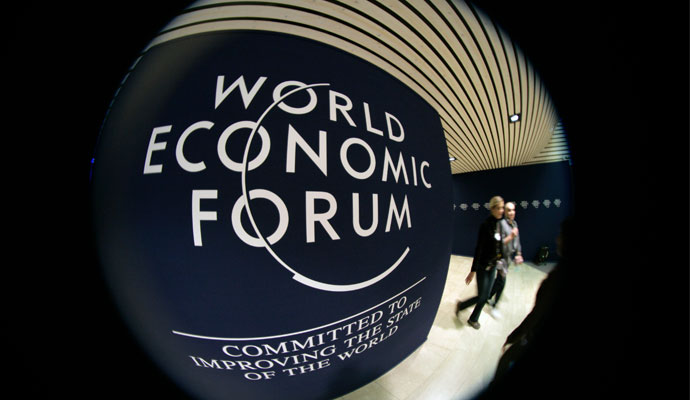Beyond Davos: Leading through Complex Global Challenges
In order to solve large-scale problems, world leaders must concentrate on what they have in common, rather than the differences between them.
(originally published by Booz & Company)It is time once again for the international elite to gather in Davos, Switzerland, for the annual meeting of the World Economic Forum. This year’s theme is “The Reshaping of the World: Consequences for Society, Politics and Business.” It acknowledges the increasing complexity of the challenges that societies confront everywhere, in both developed and developing economies. When it comes to looming threats such as climate change, there is only one boat—and we’re all in it.
I’d like to take this opportunity to offer some humble advice to the CEOs, heads of state, major philanthropists, and others who will turn a small Swiss village into the center of the universe later this week: Think beyond.
I’m completing a major research project on leadership amid meta-system scale challenges (such as climate change, urbanization, aging global populations). To gather data, I conducted a survey on what qualities people want to see in their leaders in the face of these major hairball problems. While the sample size is small (89 people), the results are interesting. (And the survey is still open, if you’d like to participate.)
First, the desire for leadership on big, complex issues was high: On scale of one to five, where five equals the greatest amount of concern, climate change received a rating of 4.27, aging populations was rated 3.49, and urbanization 3.44. The current worldwide leadership on these issues, however, was perceived as lacking: Climate change leadership received a rating of 2.67, aging populations was rated 2.31, and urbanization 2.43. Overall, “poor” was the top vote getter and, if “unsure” was removed from the list of choices, the ratings would drop significantly for leadership on aging populations and urbanization. That’s not good news.
The survey also found that there are specific characteristics the respondents sought in leaders that fall outside of the traditional elements included in much of leadership scholarship and many development programs. As a proxy for the traditional view, I used best-selling author and leadership authority John Maxwell’s 21 essential qualities of a leader. His laudable and seemingly exhaustive list includes character, charisma, commitment, communication, competence, courage, discernment, focus, generosity, initiative, listening, passion, positive attitude, problem solving, relationships, responsibility, security, self-discipline, servanthood, teachability, and vision. I then added a number of additional options derived from my own interviews with people involved in large, complex social problems. One-third of the survey respondents’ top 12 selections on essential leadership qualities came from these latter choices, not from Maxwell’s list.
What were these needed qualities? In order, they were the ability to collaborate, leading across organizational boundaries and sectors, the ability to catalyze action, and the ability to convene multiple stakeholders. While some of these may seem embedded in one or more of Maxwell’s qualities, survey respondents opted for these specific choices.
A distinct theme emerges: Think beyond leadership as a top-down activity in organizations linked to formal roles and responsibilities. Addressing complex problems requires a systems-based, multi-stakeholder view of the world. Leaders must be able to link and leverage varied—and at times divergent—constituencies. They must have a relentless bias for action, and the ability to motivate those different players.
Addressing complex problems requires a systems-based, multi-stakeholder view of the world.
Clearly, accomplishing this is not simple. If it were, we would have solved many of our big problems several WEF meetings ago. A good first step would be for those arriving at Davos to put aside their formal, hierarchical titles and think beyond to a more collective identity. That is, “I am a son, a parent, a friend, and an executive who resides in the United States,” rather than “I am the CEO of Global International, Inc.” To state your identity in these terms injects humanity and can begin to reveal the tensions inherent in the system: How does being a son inform how you think about the generations that came before you? How does being a parent shape your leadership decisions and actions that will affect the world you leave behind? How do the different roles you play reflect the concerns and needs of the other stakeholders who also face these challenges and with whom you must work in order to solve them?
Noting the order in which you place your different roles is key to understanding your priorities. It’s just a guess, but I doubt that many people’s primary identity is “executive” or “consumer.” If “parent” comes first, how might you guide the WEF discussions so that families are a top priority? In this view, creating long-term economic value is an essential business outcome, but sacrificing time with your children in order to make the quarterly numbers may not be.
Advocating for holding companies accountable for the full cost of their obvious externalities, such as pollution, will help shape the world your children and grandchildren will inherit. Focusing on improving relative income and employment levels worldwide can improve family health and stability.
These meaningful aspects of our identities create common ground that crosses cultural and political divides. Parents in Canada have many of the same concerns and aspirations for their children as parents in China. Sons and daughters around the world worry about their parents. As a leader, you should use shared values and higher purpose to convene the right people, create the conditions that foster collaboration, and catalyze bold, broad action. Together, these help us all get beyond the “what” of our lives to the “why.” And that mind-set is what lies at the heart of all true leadership.
Drop me an email if you’d like a copy of my research or the full project report. They will be ready for release shortly after the WEF meeting.




